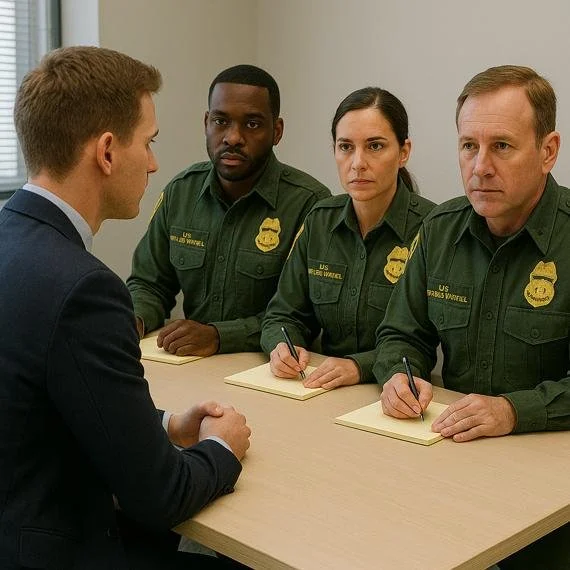What is the Border Patrol Structured Interview?
Becoming a U.S. Border Patrol Agent involves passing several tests and background checks. The Structured Interview is a significant part of this process, and is not to be underestimated. It's designed to help you secure the job and is one of the first major tests you'll face after the written entrance exam. The Border Patrol interview is a crucial step, used to assess whether you possess the right character, judgment, and emotional intelligence necessary to meet the mission and values that U.S. Customs and Border Protection (CBP) stands for. The mission and values must be upheld at all times throughout the process.
Purpose of the Structured Interview
The job for a Border Patrol Agent is really about making sure the federal laws about immigration and customs are followed correctly. These workers find themselves in places that are often very stressful and intense, so every day they have to meet people from all sorts of backgrounds. The interview panel must assess whether the applicant has the basic qualities needed for a demanding job like law enforcement.
Who Conducts the Interview?
Typically, a structured interview is conducted by human resources personnel or hiring specialists who have received training, ensuring a consistent approach each time. If someone comes in, it's mostly the same for each person, as the questions and process are already set. That way, fairness is reached. The people running it are trained. They know how to evaluate each candidate using the same criteria.
Border Patrol Structured Interview
What to Expect
The interview format is structured, with each candidate being asked the same core set of questions. This structured approach is designed to make the process more predictable and less daunting. The panel is interested in how you evaluate a situation, your process for making decisions, the decisions you make, and how you articulate you answer. It is not just did you answer the question correctionly.
How to Prepare for the Structured Interview
Reviewing your past experiences and using the STAR method—Situation, Task, Action, Results—will help you prepare, as it provides a clear structure for your answer. It allows you to share what happened step by step, making your story more effective, which is something that has always been emphasized as necessary when discussing your skills. Additionally, you're asked to keep things focused and ensure that each response directly connects to why you handled the situation responsibly or why you care about public service more than just yourself.
Summary
The Border Patrol interview is more than just a formality—it's a test of your readiness to serve, and it can sometimes catch people off guard. You need to be honest, thoughtful, and focus on the job itself, not afraid that professional test prep resources (like some of the top-rated courses featured on our site) can help you feel more confident and sharpen your interview skills. With the right mindset and intense preparation, you can test for your position with the U.S. Border Patrol with confidence. People often think it's just another step, but it is a significant test. Being ready is what will set someone apart, so you really should take it seriously. Mistakes can be made, but the interview can be passed as long as you know how to prepare and do the preparation.
Best CBP Test Prep
